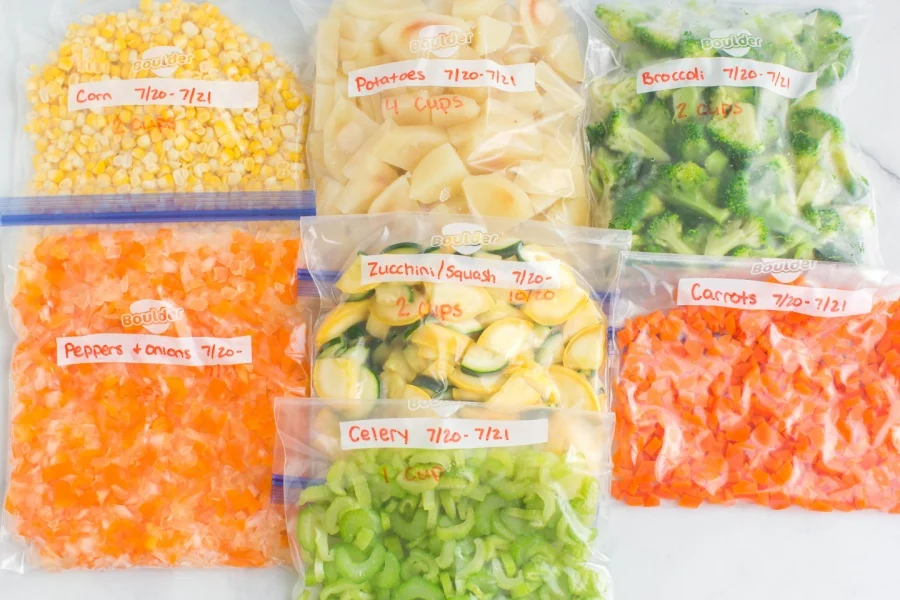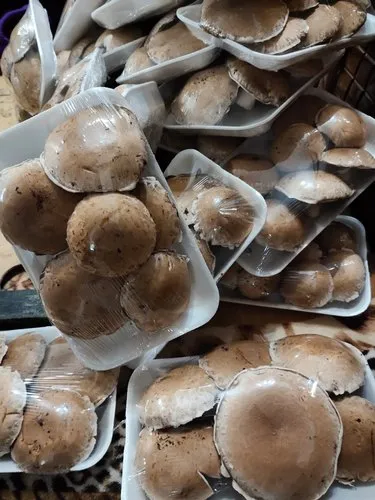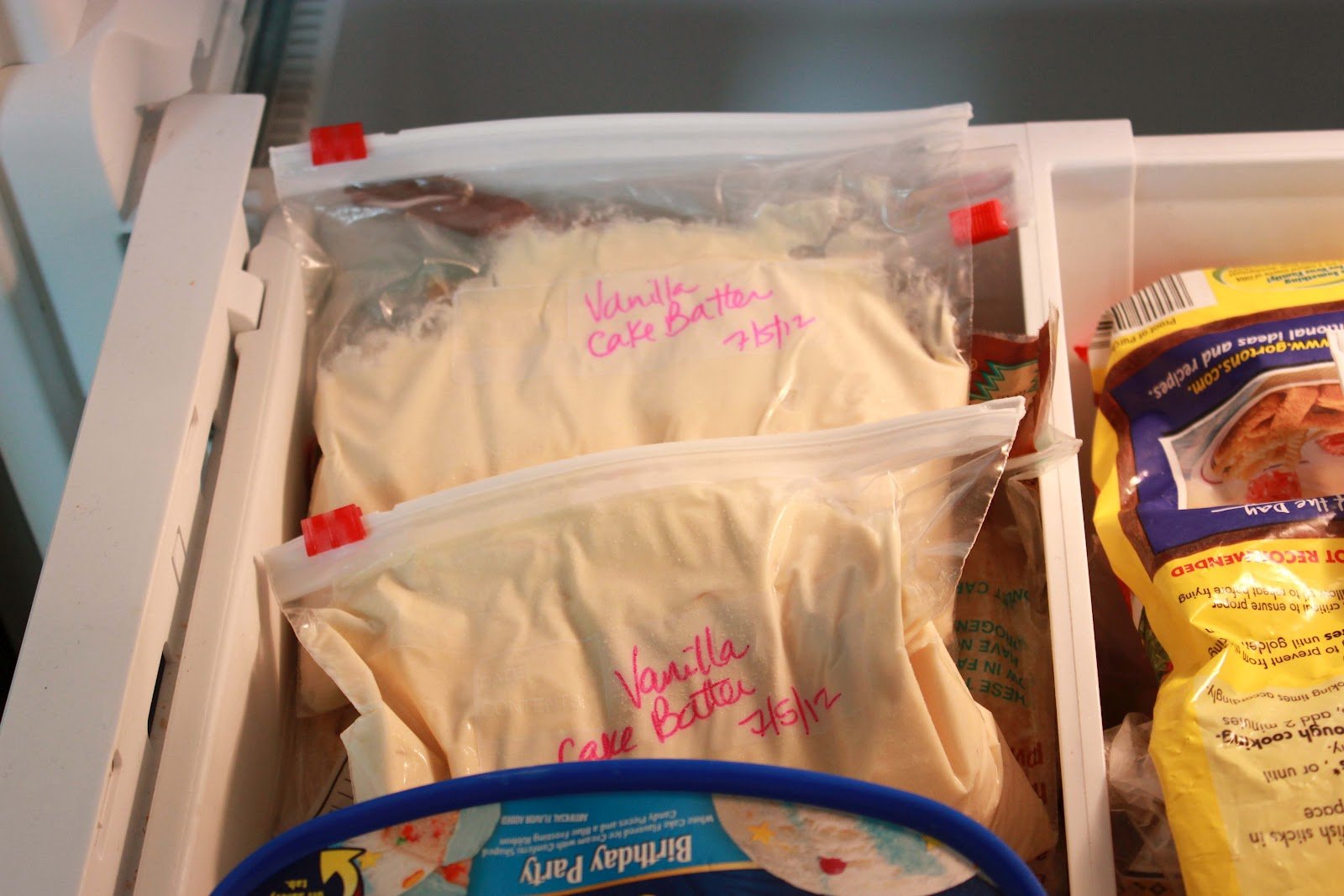Freezing fresh vegetables is an excellent solution if you have bought more than you could take in and don’t want to let them spoil, or you want to reduce food waste. You might also have to freeze your fresh vegetables if you planned a big meal but then changed your plans or want to save them for later consumption and making tasty recipes like veggies blend etc.
Whatever the case, it is feasible and easy. It is just a matter of paying attentively to the variety of vegetables you choose and how long they’ll last when stored in your freezer.
It is an ideal option for those who wish to have a variety of vegetables throughout the year instead of just having the same vegetables for a brief time. It is best to keep summer vegetables available in the middle of winter, or vice versa.

Why would you want to freeze fresh vegetables?
There are many reasons you might want to freeze fresh vegetables.
Here are a few reasons why:
- Food budgeting- If you’re on a tight budget for food, rationing your food is essential to maintain your food budget. Freeze your fresh veggies, and portioning them into one serving portions will help keep your food budget on track.
- Insecurity of food– Maybe you live in a region with a few market stalls or grocery stores. You are likely shopping for one week or a month’s worth of food at one time. If this is the case, freezing fresh veggies is an excellent option to ensure that your veggies will last for the entire month.
- Self-quarantine – Perhaps you’re reading this post during the self-incubation time of the coronavirus occurring in the USA or other countries. If you’re planning to remain at home for the next couple of months or even months, then keeping your fresh veggies in the freezer is crucial to ensure a healthy diet during the self-initiation period.
- Meal preparation- Storing fresh vegetables in the freezer can also be used for meal prep. You’ve prepared your meal kits when you prepare and divide your fresh vegetables. This is an excellent way to ensure that you have a healthy and nutritious meal plan during a busy day, it can be used to make veggies broth and its alternatives also easily.
How do you freeze vegetables?
While there may be slight differences between different varieties of vegetables, you can follow these guidelines to freeze produce.
Step 1 Chop and wash
Begin by washing your fruits and vegetables and then dry them with a clean towel. If you’d like to, chop your vegetables or cut them into larger fruits to make them easier to work with when they’re frozen.
Step 2 Freeze on one layer
Blanch the vegetables briefly to ensure their color and texture before cooling them in an ice bath. Be sure to move your vegetables to an ice bath right away to stop cooking.
After that, line your baking tray with parchment and freeze the produce in one layer to keep it from forming an enormous lump.
Step 3. Place the bag in an airtight bag for freezing
When the vegetables and fruits are frozen, put them into freezer bags by labeling and naming each before placing them neatly inside the freezer. To avoid freezer burn, be sure that every container is completely airtight.

How do I blanch my vegetables?
As previously mentioned in the previous paragraph, by blanching your vegetables before freezing, you retain the flavor and color when it is defrosted. This helps avoid burning the freezer.
The process of blanching is straightforward to do by following the steps below:
- Cook a substantial amount of water.
- Make a bowl of water filled with ice cubes and allow it to cool.
- Immerse the vegetables in boiling water for just a few minutes. There is no cooking involved with the vegetables, but you need to ensure that the color and flavor become more apparent. The vegetables need to be firm once they are out of the water.
- Use a spoon or scoop to remove the vegetables from the hot water. Then transfer them to a chilled container of water. The shock of temperate between the two water sources will slow the cooking process of the vegetables. It preserves the flavor and also the color.
Once the vegetable has completely cool, you can remove it from the iced water and dry it by using an unclean towel or a napkin paper.
Can you freeze vegetables without blanching?
If you’re looking for something new from your supper menu that isn’t exclusive, or you are bringing a certain taste to your customized cooking techniques, simply open the refrigerator and grab a frozen vegetable of your choice.
The process of freezing vegetables is a long and drawn-out job that demands boiling the vegetables before being exposed to freezing temperatures for a specified time.
Can you freeze your vegetables without the blanching process?
Yes. You can freeze your vegetables without boiling them. Blanching is freezing vegetables, in which various vegetables are boiled in water or steamed for a short time. Blanching is a vital factor in keeping and preserving the characteristics of greens. However, this process isn’t required for all kinds of vegetables.
How can you protect fruits and vegetables from freezer burn?
To avoid freezing burn To avoid freezer burn, you must know what to look out for! Large frozen crystals, hard texture, and discoloration. The cause of freezer burn is loss of moisture. It can happen rapidly if your fruit and veggies are not kept correctly within the freezing compartment.
The most important thing is that freezer burn can affect your quality vegetables and fruits and may give them a strong bitter taste. Methods to avoid the possibility of a freezer fire include ensuring that your freezer is kept at a steady temperature, removing all air from freezer bags, and closing the freezer in times of need to stop food from thawing.
Food items burned in the freezer can be eaten but are not recommended because they’re probably not very tasty or palatable.

Frequently Asked Questions
What effects does freezing have on vegetables?
Fresh produce is a source of chemicals known as enzymes which can cause the disappearance of color, the loss of nutrients, changes in flavor, and changes in the color of frozen vegetables and fruits.
What can be done with vegetables before freezing?
Before freezing the vegetables to be frozen, you should blanch and shock them by boiling them for a few minutes and draining them before putting them into the ice water. Dry them thoroughly. Blanching protects enzymes from destroying color flavors, nutrition, and flavor.
What happens when you freeze your vegetables and do not blanch them?
Blanching vegetables helps them retain their vibrant colors and also retain nutrients. It also blocks the enzymes that can cause loss of nutrients. Frying vegetables without blanching first causes dulled or faded colors and unpleasant flavors and textures.
How To Cook Frozen Vegetables?
Frozen vegetables can be steamed, baked, sauteed, microwaved, fried, roasted, or boiled. Some may need to be prepared in more specific ways. For example, potatoes should be at least partially thawed when large.
They will be cooked on the outside and kept frozen or cold inside. Large vegetables can be cooked in an oven at temperatures that are appropriate to their size and densities. Ovens cook more evenly than other kitchen appliances.


We are baking experts and connoisseur of food with decades of cooking experience to cook and bake a variety of scrumptious food item to awaken the taste buds of people who eat our baked delights.
With our gumption, alacrity along with astute acumen to pick the authentic and best quality ingredients from across the world to make the scrumptious recipes which soothes the taste buds of eater has made him the name on which people can count on when it comes to cooking advice, world class meals and cuisines native to the different cities of world.
Our chefs unique ability improvise and make baked dishes with different raw produce and ingredients in less time which are delicious and relished by the guests has made kooky bakes leader in the arena of baking and serving mouth watering food.

